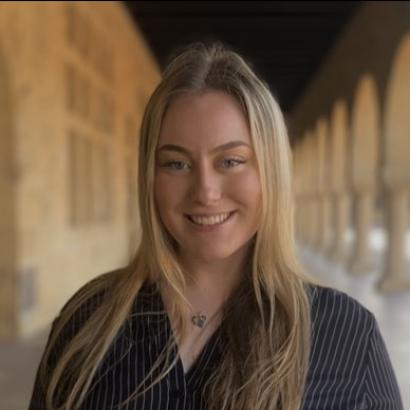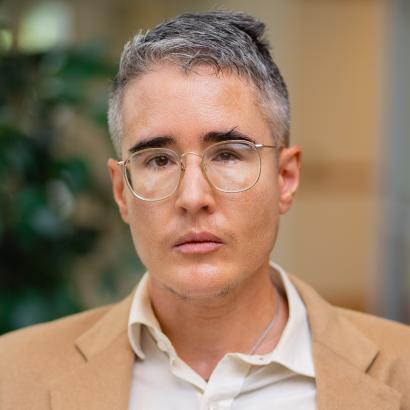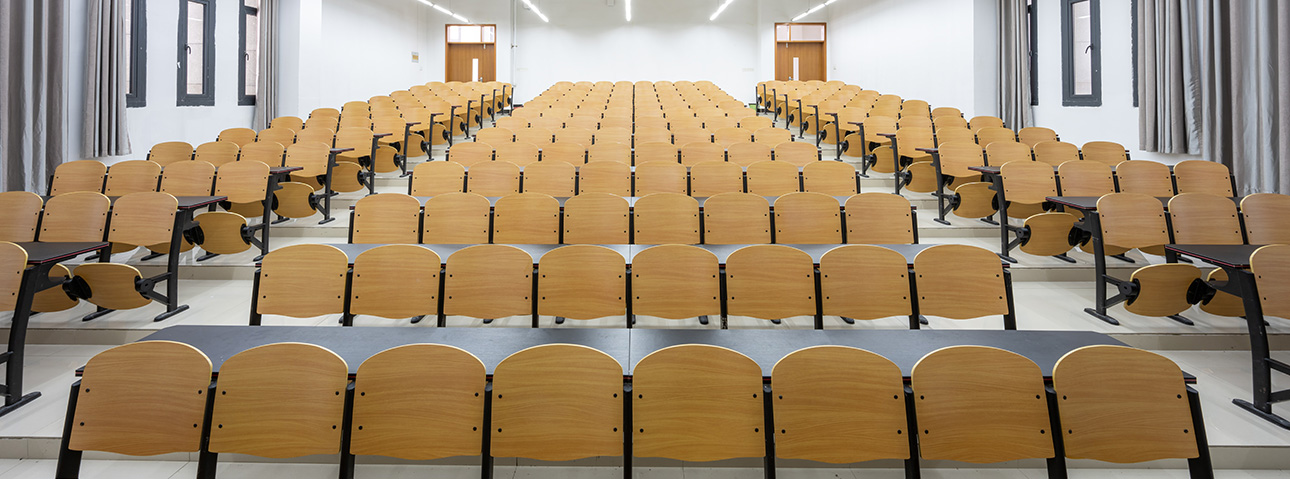The Hoover History Lab Courses Committee was formed in October 2024 in response to Stanford student desire for guidance in finding courses that explore consequential history (the use of history for addressing contemporary policy challenges). We took as our framework the Lab’s mission statement to meet this demand. Students have been centrally involved in this committee’s work and in HHL.
As background, Hoover History Lab Director Stephen Kotkin had asked the committee to respond to his experience in the Lab’s core course, “Global Futures: History, Statecraft, Systems” (INTLPOL 222), which he and Professor Condoleezza Rice teach annually. In that course, as well as in Bertrand Patenaude’s “War, Revolution, and Peace: The View from Hoover Tower” (INTNLREL 25), students frequently inquire about what course to take next, to build on what they have learned. Our proposed guide aims to provide them with suggestions for further study. At the same time, it will offer, to any student interested in consequential, policy relevant history, a set of well-considered pathways.


Responding to student demand is the primary goal of the Courses Committee. As such, the pathway itself was crafted in a close collaboration between student leaders and faculty members. We intend for this document to serve as a dynamic resource allowing interested students to build upon prior coursework and plot their future academic trajectory. We are confident that this document will enhance students’ pursuit of the study of consequential, policy-relevant history. Stanford is rich in such courses already, and some gaps can be readily filled.
This pathway incorporates course offerings across different departments and disciplines. It is a curated, expressly interdisciplinary guide for student choices. Of course, it is not intended to replace the offerings of other campus units, or existing majors or minors. On the contrary, it aims to spotlight Stanford offerings and, where possible, to add to them. The Courses Committee welcomes collaboration with any faculty member teaching a course relevant to this effort. We have met with the Stanford History Department chair, spoken to individual History Department faculty, and welcome their participation. We anticipate that this pathway will evolve with new course offerings and departmental collaborations.

We decided to provide students with a three-tiered offering: (1) two Core courses; (2) eight “Primary” courses that we position within each of four tracks: War & Diplomacy, Science & Technology, Economics & Finance, and Politics & Institutions; and (3) numerous “Supplemental” courses that we feel will enrich the study of consequential history. What we propose is still a rough draft for purposes of discussion. In some cases, we found more than two potential “Primary” courses that could serve as natural follow-ups; substitutions could be made, of course.
While we worked, we kept the following aims in mind:
- To respond to Stanford student demand for guidance in the selection of courses in consequential history.
- To address Stanford students' desire to “unseal the mystery” of the Hoover Institution.
- To encourage Stanford students to conduct research in the Hoover Library and Archives. This is especially germane to students in the history of Asia, modern history, or economics.
- To offer Hoover Fellows the opportunity to teach.
- To build our approach around the Core Course. To build the HHL pathway and foster the development of its educators in a sustainable way from the bottom up, and to administer it with a continuity of aim.
- To create links between HHL and departments across campus, and with global history programs at other institutions.
- To create synergistic links between the HHL, the COLLEGE program, the SCI, RAI, and Freeman-Spogli.
In pursuit of these goals, the steering committee (Strauss, Tully, and Staiano-Daniels) convened four meetings of the full committee. The full committee provided valuable advice about potentially relevant courses and faculty. Perhaps more important, they offered a sense of what the curriculum looks like from the undergraduate point of view.
Armed with this information, the steering committee scanned both the Stanford course listings and the list of Hoover Senior Fellows. We cast the net widely. We identified approximately 100 courses that seemed relevant. We contacted several dozen Stanford faculty members as well as about two dozen Hoover fellows. Some declined because of heavy commitments or because their courses were not, in fact, well-suited to the program. Still, we received many enthusiastic responses.
Based on our work, we propose the following as a suggested pathway. All of these instructors have agreed to have their courses listed in our HHL-recommended pathway through Stanford unless otherwise noted.
Respectfully submitted, for the HHL Curriculum Committee
HHL Curriculum Committee Chairs

Barry Strauss
Corliss Page Dean Senior Fellow
Barry Strauss is the Corliss Page Dean Senior Fellow at the Hoover Institution. He is also the Bryce and Edith M. Bowmar Professor of Humanistic Studies Emeritus at Cornell University, where he taught for over four decades.
Strauss is a military and naval historian with a focus on ancient Greece and Rome and their lessons for today. “No one presents the military history of the ancient world with greater insight and panache than Strauss,” wrote Publishers Weekly. His books have been translated into twenty languages and include several bestsellers. His The Battle of Salamis (2004), Masters of Command (2012), Ten Caesars (2019), and The War that Made the Roman Empire (2022), all appeared on best books of the year lists. His latest book, Jews vs. Rome: Two Centuries of Rebellion Against the World’s Mightiest Empire, will be published by Simon & Schuster in August 2025. He is Series Editor of Princeton’s Turning Points in Ancient History. He also served as Distinguished Visiting Professor in the Department of Defense Analysis at the Naval Postgraduate School. He holds a Ph.D. from Yale and a B.A. from Cornell.
Strauss is a a winner of the 2025 Bradley Prize, honoring his lifelong dedication to the study and teaching of Western civilization and classical and military history. In recognition of his scholarship, Strauss was elected to membership of the American Academy of Sciences and Letters. He received Italy's Lucio Colletti Journalism Prize for Literature in 2015. He was named an Honorary Citizen of Salamis, Greece in 2012. He has received fellowships from the National Endowment for the Humanities, the German Academic Exchange Service, the Korea Foundation, the American School of Classical Studies at Athens, and the American Academy in Rome. See Strauss's personal website.
Read Full Bio
Kate Tully
Student Participant
Kate Tully is a Hoover History Lab student researcher and Director’s Office intern at the Hoover Institution. She is a senior at Stanford University studying political science with concentrations in governance and international relations. Her research focuses on authoritarian actors, colonialism, and geopolitical competition in Africa. She is currently completing an honors thesis on autocratic coups in the West African Sahel.
Read Full Bio
Lucian Staiano-Daniels
Research Fellow
Lucian Staiano-Daniels is a research fellow at the Hoover Institution and the author of The War People: A Social History of Common Soldiers During the Era of the Thirty Years War (Cambridge University Press, 2024). As a historian, he is interested in the structural similarities in warfare between the early modern period and the present day. He comments on modern international affairs for magazines such as Foreign Policy.
Staiano-Daniels conducts research on the history of violent conflict during the early modern period (1500–1700), focusing on the daily lives of common soldiers and the women with them. Because many of these people were illiterate, or the writings they left behind often did not survive, his methodology includes the critical reading of sources like legal documents and trial transcripts to obtain glimpses of life inside early modern regiments.
But these unknown individuals also lived within massive social and economic developments: global movements of people, money, and goods; demographic changes; and changes in the organization of fiscal-military systems. Staiano-Daniels seeks to study these systems through methods that take larger, statistical views of human life. Studying human life at both the micro and the macro scales reveals the many ways that the early modern period is the "hinge" of history, in which the world we live in took shape. The War People, his first book, situates a single regiment from mustering-in to collapse within its larger demographic and economic contexts.
Staiano-Daniels has a BA in the Great Books and an MA in Eastern classics from St John's College, and an MA from New York University in interdisciplinary studies and social thought. He earned his PhD in history from UCLA under David Sabean. His methods include social history, microhistory, economic history, intellectual history, and the Annales School.
Read Full BioCurriculum Committee Members
Barry Strauss and Kate Tully, Co-Chairs
Lucian Staiano-Daniels, Vice-Chair
Cole Bunzel
Ruosong Gao
Felipe Jafet
Norman Joshua
Joseph Ledford
Cody Nager
Bertrand Patenaude
Ria Roy
Cheryl Steets
Dian Zhong










